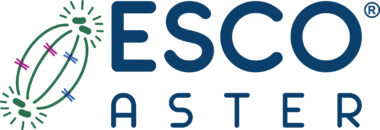New research from La Trobe University highlights that Australia’s multilingual resources during the COVID-19 pandemic were not always effective, with communication gaps sometimes leading to mistrust in public services.
Even though Australia has good quality translation and interpreting services, people who speak languages other than English still struggle to access timely and high quality information that is essential to their health and wellbeing.
The global study, which was published in the Australian Journal of Social Issues, reviewed research from Australia and around the world to find the best examples of multilingual communication models that were both effective and inclusive.
Lead researcher Raelene Wilding said while Australia was a world leader in offering multilingual resources access to healthcare services, the COVID-19 pandemic revealed that these resources are not always effective in a crisis.
“During the COVID-19 pandemic in Australia, the need for quick, accurate communication of new public health messages placed interpreter and translation processes under significant strain,” Professor Wilding said.
“Communication gaps contributed to increased fear, anger, and loss of trust in public services among many people from migrant backgrounds.”
Professor Wilding said looking at data from many countries, it was clear that when governments used social media platforms to share important health alerts to the wider community, some people questioned if it was genuine and showed a degree of mistrust, while other community members did not have access to social media platforms.
“While digital tools are necessary to support communication, they are not sufficient when it comes to relaying urgent health alerts,” Professor Wilding said.
“We discovered that most nations around the world relied heavily on migrant communities and poorly funded migrant community organisations to fill gaps in communications.
Professor Wilding said governments and health authorities should take responsibility for working with communities to provide effective and inclusive multilingual communications for all people and reduce the heavy reliance on the volunteer work of multilingual community members.
“The best inclusive multilingual communication needs a network of strong relationships and partnerships between multilingual communities and health authorities, which should be maintained beyond the immediate emergency,” Professor Wilding said.
The study Linguistic diversity and emergency health alerts: A systematic critical review, can be found here: https://onlinelibrary.wiley.com/doi/10.1002/ajs4.328
Contact details:
Elaine Coney
[email protected]
0487 448 734

